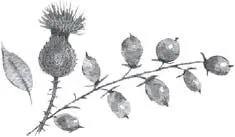At the observatory, a clergyman named Reverend Maskelyne was waiting for them. Tom didn’t understand the shock and anger with which their passengers greeted the man as he removed his hat in a sweeping bow, but Maskelyne’s smug smile alerted them all to the fact that there was something very wrong. It was only later that Tom heard that Mr Maskelyne too was engaged in the quest for an accurate timepiece and that he, who was to be the judge of Mr Harrison’s instrument, had recently completed the ocean voyage himself and had already claimed the prize. He dithered as he made the observations of the sun and claimed he could not see it for cloud. It was Captain Lindsay who pointed out that there wasn’t a cloud in the sky and insisted the observations be done again and later noted in the ship’s log that the watch had worked to perfection, losing only a few seconds on the month’s voyage from Madeira.
As Tom looked on, his eyes glued to the proceedings, he became aware of someone standing close at his elbow. He glanced up to find Andrew staring at him, a strange expression on his face. Tom moved away slightly and returned to studying the men making their careful notes. Andrew moved with him. ‘That’s right, pretty boy. Make sure you don’t miss anything.’ The whisper in his ear was so quiet it was lost in the sound of the rustling palms and the cry of the birds. ‘Are you planning to add Astronomer Royal to your list of titles?’
Tom did not reply. He was busy memorising everything going on between the astronomers, planning already the letter he was going to write to David.
The ship proceeded to cruise between the Windward Islands and up as far as the coast of Florida where they would anchor off Pensacola. As before, the men maintained the ship, scrubbed the decks, watched for distant sails and the midshipmen went about their duties, interspersed with lessons in seamanship and navigation. Once or twice an American privateer was spotted and they gave chase, but to their intense disappointment the ships were too far away to catch and slipped out of sight beyond the horizon.
There was plenty of time for Tom to write his letters and his own diary and to practise drawing, and now there were more frequent opportunities to put the letters in the mailbag to be taken aboard an eastbound ship or a mail packet, and to collect plants on their trips ashore. He discovered too that the ship’s officers were invited to the great plantation houses for dinners or sometimes for parties. It was on one of those trips, accompanying Sir John as his personal servant, that, having been sternly reminded of the need for discretion as part of the duties of an officer and a gentleman, he met the captain’s woman.
The party was to spend several nights ashore as guests of the plantation owner and Tom gazed as usual in awe at the splendours of yet another great house. He was given a small room adjoining the captain’s and it was before the dinner on the first night when there was a knock at the door. Automatically he went to answer it and stopped abruptly at a sharp command from Sir John. ‘Leave it! You may go, Tom. You may take the rest of the evening off. I shall not need you again tonight.’
He gestured towards the door which led to the adjoining dressing room. As Tom went obediently towards it Sir John himself went to answer the knock. Tom glanced back and was astonished to see one of the slave women at the door and even more astonished to see his captain seize the woman in his arms, swing her off her feet and kiss her. He caught sight of Tom standing open-mouthed, his hand on the doorknob. ‘I said, you can go!’ he shouted.
‘Yes, sir, sorry, sir.’ Tom hastened out of the room.
He sat down on the bed wondering what to do next. He knew some of the officers availed themselves of the services of the women ashore; white women and slaves both seemed equally willing and indeed eager to seek the company of the men from every ship that dropped anchor as they sailed from island to island. That the captain should do the same was not surprising in itself, but the strength of feeling between the two in that short glimpse had been undeniable. The woman was beautiful, he had seen enough of her to notice that, and they obviously knew each other well. With a sigh he levered himself off the low divan and let himself out into the corridor. Suddenly he had hours of free time to himself and he wasn’t sure where to start .

Black faces I had seen aplenty when I was back in Scotland and in England. Most, though not all, appeared to be servants. I don’t think I considered the matter of slavery then. I heard my parents talk about it, and my sisters, but not in any way that engaged me, with my own boyish interests paramount. When I reached the Caribbean I was all at once in a world of men and women and children who had been brought there on the slave ships from Africa. The ships themselves were notorious – some lay at anchor in Bridgetown Bay when we first arrived, redolent of the horrors that went on below decks – but on the plantations we visited, in the houses of the owners and administrators who were our hosts, the slaves seemed content with their lot. I did not then understand the concept of freedom or self-determination. Had my lot been any worse than theirs, conscripted as I was, in my own eyes anyway, into the navy and taken away across the ocean against my will? Their quarters were pleasant, their food better by far than any they could have been used to in their native land, or so I supposed, and better than that on many a ship of His Majesty’s navy, their clothing neat and clean. I saw them dancing and I heard them sing. My captain loved one of them, and as I discovered later had a child with her whom he adored. He saw nothing wrong with their situation, so nor did I, then.
And one of them saved my life.

Tom could not believe he had been so careless. His sea chest was unlocked, the lid open when he came down off his watch and went automatically to collect his sketchbook. He scanned his belongings. Had anything been stolen? He did not believe it of his shipmates, but occasionally things went missing from someone’s gear, probably lost, or put down in the darkness of the gunroom and kicked by mistake into a corner, but there was always the possibility that one of the seamen could have slipped into the midshipmen’s mess on the rare occasion when there was no one there.
He knelt before the chest. His writing case was there, the box that contained his pens and inks, his clothes, his precious ring-dial, all his carefully packed and sorted belongings. He wrinkled his nose. An unusually foul smell rose from his body linen as he fumbled beneath it for the packet of letters he had received from home, carried on a sloop from Portsmouth. He recoiled then he reached for the glim, the small candle on the mess table, and held it down over the sea chest to see more closely. A bundle of filthy rags had been tucked in amongst his clothes. In the flickering light of the flame he could see the moist stinking brown stains and was in no doubt what this was. He grabbed the corner of the bundle and ran with it up the companionway to the deck where he threw the offending rags over the side. He saw the querying look on the faces of the men on watch up there but none that he could see looked especially concerned or interested. It didn’t matter. He could guess who had done it. He did not immediately guess how truly malicious the act had been.
Читать дальше













